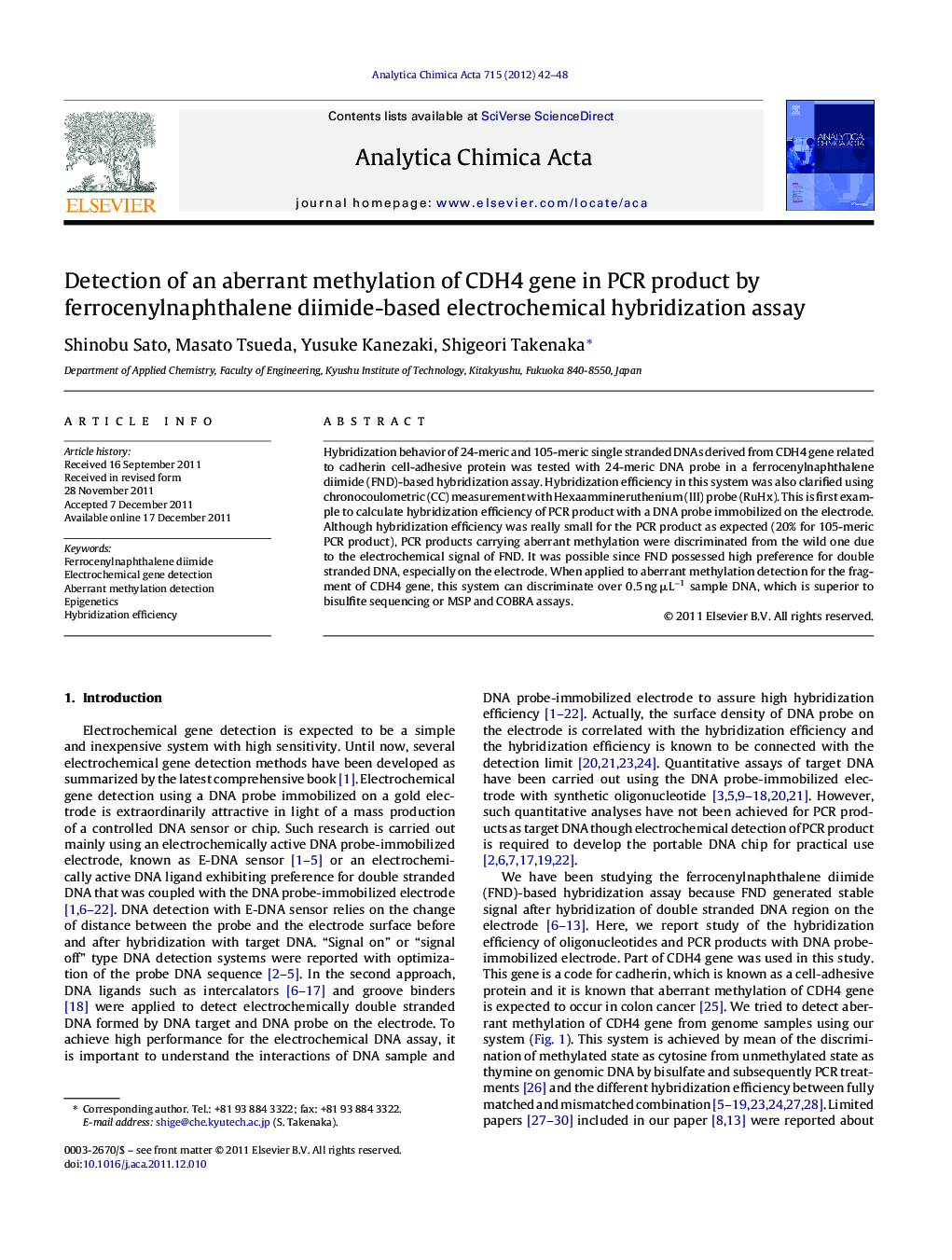| Article ID | Journal | Published Year | Pages | File Type |
|---|---|---|---|---|
| 1166175 | Analytica Chimica Acta | 2012 | 7 Pages |
Hybridization behavior of 24-meric and 105-meric single stranded DNAs derived from CDH4 gene related to cadherin cell-adhesive protein was tested with 24-meric DNA probe in a ferrocenylnaphthalene diimide (FND)-based hybridization assay. Hybridization efficiency in this system was also clarified using chronocoulometric (CC) measurement with Hexaammineruthenium (III) probe (RuHx). This is first example to calculate hybridization efficiency of PCR product with a DNA probe immobilized on the electrode. Although hybridization efficiency was really small for the PCR product as expected (20% for 105-meric PCR product), PCR products carrying aberrant methylation were discriminated from the wild one due to the electrochemical signal of FND. It was possible since FND possessed high preference for double stranded DNA, especially on the electrode. When applied to aberrant methylation detection for the fragment of CDH4 gene, this system can discriminate over 0.5 ng μL−1 sample DNA, which is superior to bisulfite sequencing or MSP and COBRA assays.
Graphical abstractFigure optionsDownload full-size imageDownload as PowerPoint slideHighlights► Hybridization efficiency with a DNA probe on the electrode was clarified. ► Hybridization efficiency was 20% for 105-meric PCR product. ► Electrochemical PCR analysis was achieved using ferrocenylnaphthalene diimide. ► This system applied to aberrant methylation detection for the fragment of CDH4 gene. ► This detection can be achieved over 0.5 ng μL−1 sample DNA.
